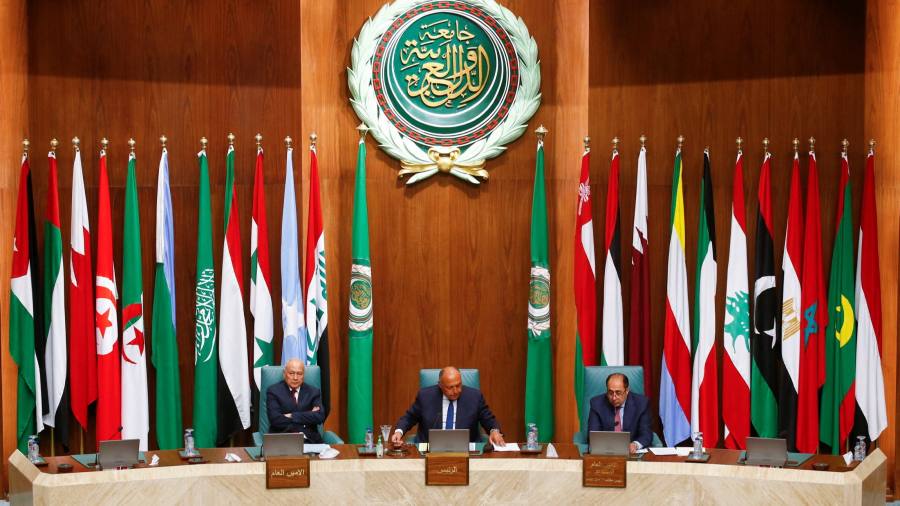Arab states have agreed to readmit Syria into the Arab League more than a decade after its membership was suspended following President Bashar al-Assad’s brutal crackdown against a popular uprising.
Foreign ministers, meeting in Cairo on Sunday, voted to readmit Syria after relations between Arab capitals and Damascus thawed in recent months, with a series of high-profile visits and Saudi-led diplomacy focusing on how the region should re-engage with the regime.
The readmittance — a symbolic boost to Assad — comes after Saudi Arabia agreed to restore diplomatic relations with Iran, one of the regime’s biggest backers, in March.
Diplomats said some states — including Qatar, Kuwait, Jordan and Egypt — had previously opposed Syria rejoining the league when Riyadh raised the issue at a meeting of foreign ministers in Jeddah last month. Those in opposition believe Assad has done nothing to rehabilitate himself since brutally crushing a rebellion with the military backing of Iran and Russia. However, they agreed to its readmission after lobbying by Saudi Arabia and the United Arab Emirates.
“Over the past few weeks, the Saudis, UAE and others have been persuading the group to vote in favour of readmitting Syria to the Arab League. Egypt, Jordan, and eventually Kuwait agreed,” a regional diplomat said.
The Qataris, as the only ones still resisting, eventually went with the consensus, taking the view that Syria’s readmission to the Arab League — which many believe has diminished influence — did not affect Syria’s standing in the region, they added.
The diplomat said several countries believed that more concrete steps needed to be taken before they could support a normalisation in relations with the Syrian regime. This — and not readmission to the Arab League, set up in 1945 to promote regional co-operation — was “the only route” to ensure “concrete steps” were taken by Assad and normalisation occurred.
The Syria Campaign, a human rights group, said the decision to allow the Assad regime to rejoin the Arab League was “a devastating setback for justice and human rights for Syria and for the whole region”.
“Today Arab states have put their own cynical realpolitik and diplomatic agendas above basic humanity,” said Laila Kiki, executive director of The Syria Campaign. “By choosing to restore the Syrian regime’s membership of the Arab League, member states have cruelly betrayed tens of thousands of victims of the regime’s war crimes and granted Assad a green light to continue committing horrific crimes with impunity.”
States that had been opposed to Syria’s readmission to the league had wanted the re-engagement to be carried out through a step-by-step process, hoping they could secure commitments from Assad — including on humanitarian issues, refugees and curbing the illegal trade in captagon, a highly addictive amphetamine that has become an economic lifeline for Damascus.
Ahead of the Arab League meeting in Cairo, Ayman Safadi, Jordan’s foreign minister, told new channel CNN that the readmission of Syria was “only the beginning of” bringing a political end to the Syrian crisis. He said “everybody” in the Arab League was on board to end the Syrian crisis, but there were differences on what was the best approach.
Syria’s isolation in 2011 came as uprisings against dictatorship swept the Arab world, raising hopes — later dashed — that the region was on the verge of a new democratic era.
Assad violently suppressed peaceful protests in his country, triggering a civil war that lasted more than a decade.
While Turkey and some Gulf countries sought the overthrow of Assad during the initial stages of the war, the Syrian president was able to regain control of most of the country with Iranian and Russian backing. The remnants of the opposition control north-western pockets of the devastated nation.
The regime remains under western sanctions and millions of Syrians have been internally displaced or sought refuge in foreign countries. More than half a million people were killed in the conflict. The regime starved, bombed and tortured civilians into submission.
Read the full article here




